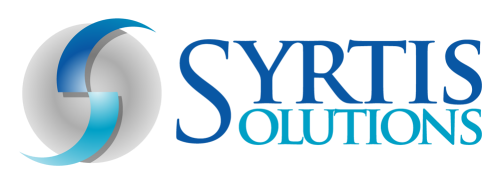
01 Feb MEDICAID TPL SOLUTION PRESENTS A SIGNIFICANT SAVINGS OPPORTUNITY
Dependence on the Medicaid program has increased exponentially over time. Presently, it is the single largest insurer in the United States, and in FY 2019, it accounted for over half of all federal monies allocated to states. Regrettably, as the program has grown, waste has also become more prevalent. Improper payments are costing the program billions of dollars each year.
Despite being on the GAO’s High Risk List since 2003, Medicaid’s improper payment rate continues to climb and put more strain on budgets. In 2018, the program’s improper payment rate was at nine percent, and by 2020 it had risen to twenty-one percent. That equates to a shocking $143 billion. However, according to analysts, these numbers are conservative estimates that do not take into account all the needed data. In reality, the improper payment rate is believed to be closer to twenty-seven percent or $100 billion annually.
Initiatives to Reduce Improper Payments
Fiscal integrity has been a problem for Medicaid since its inception. So much so that over the last fifty years, multiple policy and legislative efforts have occurred to address improper payments. These efforts primarily assess the risk of fraud, estimate the impact of TPL, increase reporting criteria, and increase data sharing. However, while these measures help bring the problem into scope, they do nothing to prevent the improper payment rate from climbing.
Besides these legislative initiatives to manage costs, some policymakers have suggested adjusting how the safety net program is funded to cut down waste. They think that the program should be incentivized to use funding more responsibly and efficiently. One idea is to implement block grants. These grants would consider the size of the eligible population within a state and give the states the flexibility to allocate the funds with minimal oversight from the federal government. The states would be responsible for ensuring that the appropriate care is being delivered to plan members and that program resources are not wasted. Another idea is for Congress to establish tax-free health savings accounts to decrease the dependence on Medicaid and improve access to health care for those in need. The health savings accounts would be funded with the savings achieved from reducing waste in the Medicaid program.
Reducing Improper Payments with Medicaid TPL Tech Solutions
While lawmakers think about program reform, one area of opportunity to substantially reduce costs exists within Medicaid’s coordination of benefits. At the moment, the majority of Medicaid’s improper payments actually stem from bad quality data and inefficient TPL processes, not deliberate fraud and abuse. Payers of last resort struggle to identify primary coverage on pharmacy and medical claims. Much of the data they have access to is not current, available, complete, or accurate. Because of this, plans have no choice but to pay claims in error and chase reimbursement once other health insurance (OHI) is discovered. Unfortunately, the actual funds recovered remain around twenty cents on the dollar.
Syrtis Solutions saw that Medicaid plans needed a means to identify active OHI coverage so that claims could be adjudicated correctly. In 2010, they launched ProTPL, a real-time point of sale cost avoidance service for the payer of last resort market. ProTPL supplies powerful and accurate eligibility data that can be acted upon. The solution gives plans the ability to cost avoid pharmacy and medical claims and the associated costs of recovery. Additionally, the coverage identified by ProTPL can not be found by other vendors. Syrtis Solutions is able to do this by checking claims against the nation’s largest and most complete active healthcare coverage information database. Customers who implement the tool see an average 25% increase in OHI discovery. This means Syrtis’ customers get the best and latest eligibility responses when they need them.
In March, Medicaid enrollment reached nearly 75 million people, and that number continues to rise. As a result, the chances for waste and improper payments are likely to increase also. This is problematic considering that Medicaid is losing billions of dollars every year in improper payments already. As a result of strained budgets, program integrity issues, and enrollment surges, some policymakers and states are considering different ideas and program reform to reign in costs and decrease waste. While these efforts are being looked into, they have yet to be implemented. Presently, one of the most significant opportunities for reducing Medicaid’s improper payments lies within the coordination of benefits. Plan administrators should look to TPL technology solutions for further efficiency and cost avoidance opportunities.
